
 We're in Vancouver for the 65th annual Canadian Psychiatric Association conference! Stay tuned for updates or check us out on Twitter for live tweets or by searching #cpaconference!
0 Comments
Could the simple act of putting up barriers at #suicide "hotspots", like at popular cliffs or bridges, be enough to deter and protect patients contemplating ending their life? A recent study suggests just this, check it out now: "But the most effective strategy was to physically restrict access to suicidal hotspots. Doing so yielded a 90% reduction in suicides at the sites. It may seem like a fence or a barrier would be too small of a gesture to stop a suicide, or that people who are suicidal will simply find another spot to take their lives. That’s a fallacy, says Pirkis, since suicides are often more impulsive and less premeditated than we think. “You can take the opportunity to change the track of a person’s thinking,” she says, just by setting up a small barrier." http://time.com/4044218/suicide-suicidal-hotspots/?xid=tcoshare 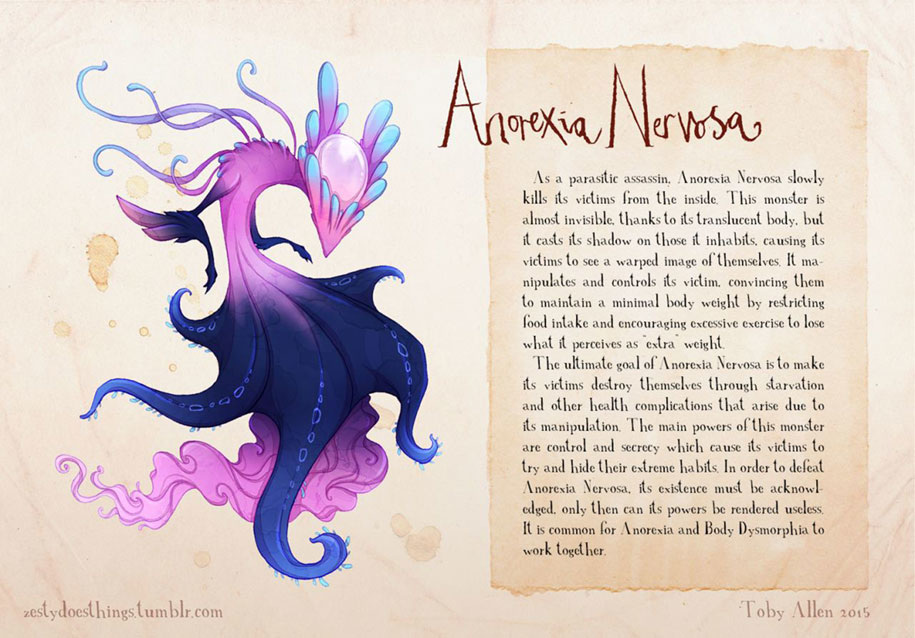 Artist Toby Allen first began drawing mental illnesses as monsters to be slain as a method to cope with his own anxiety. However, his art was quickly noticed by others suffering from similar #mentalhealth conditions and through the unique representations he hopes to help others feel that mental illness is something that can be tackled and treated. "I hoped to draw attention to mental illnesses that often get ignored or aren't taken seriously," he said. "I want to make people aware of how damaging these illnesses are and how much of a burden they can be to those who suffer from them. The project also highlights conditions that some people may have never even heard of, so the work aims to raise awareness for these. I hope that people can relate to the work and that it helps them to see their illness in a different light, make it appear more manageable." His full collection of "Real Monsters" can be found here: http://zestydoesthings.tumblr.com/post/61131470551/the-real-monsters-are-reborn-upon-getting-so http://zestydoesthings.tumblr.com/post/124937838384/the-complete-volume-2-of-the-real-monsters-its http://www.boredpanda.com/mental-illnesses-illustrated-by-monsters-by-toby-allen/ Nick Seluk, the artist behind The Awkward Yeti comic, recently partnered with Sarah Flanigan, a reader who shared with him her experience and challenges in living with depression and anxiety.
Together, they came up with idea to use a comic to depict the reality many people with mental health conditions face. They hoped that the comic not only helps get people talking about mental illness, but also improves understanding of the struggles some individuals face daily when dealing with chronic sadness and anxiety. Check it the comic here: http://www.upworthy.com/a-comic-that-accurately-sums-up-depression-and-anxiety-and-the-uphill-battle-of-living-with-them?g=3&c=ufb1 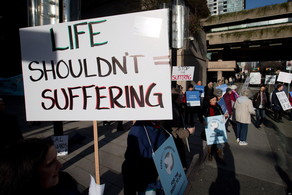 As you may remember, a few months ago, the Supreme Court of Canada made history when they unanimously struck down the ban that prohibited physician-assisted death for adults suffering "grievous" and "irremediable" conditions. While many applauded the decision in favour of personal autonomy and approved of Canadian citizens having the right to decide whether they wish to die with dignity or not, within the field of psychiatry hesitation and concern still lingers ... Specifically, many psychiatrists are worried about how the new ruling will affect patients with mental health conditions, as they fear many would argue that certain mental illnesses cause "intolerable suffering" and treatments are often used for symptom control rather than a definite cure, making it fit under the "irremediable" criteria as well. What's more is that some are arguing that psychiatric assessments should be performed for every person seeking assisted death, which could place psychiatrists in more of a "gatekeeper role" and in a immensely difficult position trying to balance between "enabling" suicide/death while still trying to protect patients, particularly those with mental illness. To learn more about what psychiatrists from around the country are saying about this topic, check out the interesting article here: http://news.nationalpost.com/health/0914-na-suicide "The ruling is creating deep discomfort in a field of medicine where “cures” are rare, and where many worry there is every possibility severe depression and other mental illnesses could meet the test for assisted suicide, or even euthanasia — death by lethal injection — as set out by the court, as long as the person is competent and can provide free and informed consent... The big fear for psychiatrists is that they may be participating in physician-assisted death, when there is a chance for treatment." 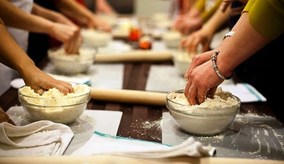 As the final part of this series on #mentalhealth and baking/cooking, we review some of the evidence behind using food as a therapeutic modality for #mentalillness ... While we posted this article as part of a "Psych In The News" feature a number of months ago, it is worth highlighting again and having a read through if you have not yet already ... The article (a summary of which can be found here: http://www.medicaldaily.com/treating-depression-kitchen-cooking-baking-classes-can-double-therapy-313792), reviews how cooking classes are a quickly growing adjunct therapy for various psychiatric conditions, most notably depression. Especially for affected teens, cooking classes can "soothe stress, build self-esteem and curb negative thinking". "Psychologists say #cooking and #baking are pursuits that fit a type of therapy known as behavioral activation. The goal is to alleviate depression by boosting positive activity, increasing goal-oriented behavior and curbing procrastination and passivity. “If the activity is defined as personally rewarding or giving a sense of accomplishment or pleasure, or even seeing the pleasure of that pumpkin bread with chocolate chips making someone else happy, then it could improve a sense of well-being,” says Jacqueline Gollan, associate professor of #psychiatry and behavioral sciences at Northwestern University Feinberg School of Medicine in Chicago." http://www.wsj.com/articles/a-road-to-mental-health-through-the-kitchen-1418059204 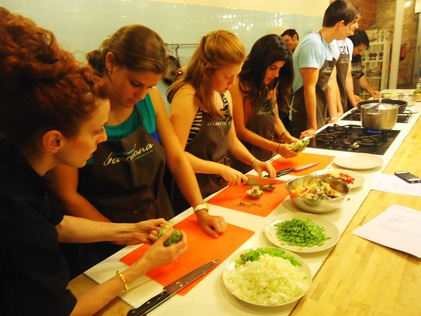 CoolTan Arts, is a mental health charity located in England, that operates on the belief that "mental well-being can be enhanced by the power of creativity" and through the arts. As part of their program, CoolTan offers a cooking club to their members to not only learn how to eat a healthy diet which is thought to improve the prognosis of various mental illnesses, but to provide a sense of community and support, as many of these individuals are used to eating alone or struggle to buy and cook healthy meals due to financial limitations. "CoolTan Arts believe there is a strong connection between food and mental health. Two years ago they started a cooking club for their members; many have experience of mental illness. Based in Southwark, south London, members meet twice a week to choose and cook recipes together. The club adapts its recipes to cater to the needs of those who attend or for those on medication that can bring side effects such as weight gain or appetite loss. There is a strong link between mental health conditions (in particular, depression) and diabetes, which is taken into consideration, as is the need to be sensitive around those with eating disorders." Find out more here: http://www.cooltanarts.org.uk/ http://www.theguardian.com/society/christmas-charity-appeal-2014-blog/2015/jan/02/-sp-rosemary-shrager-cooking-mental-health 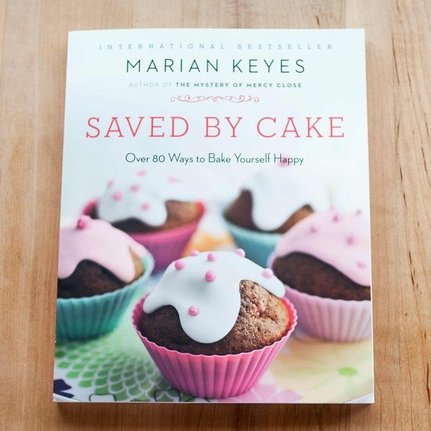 Never underestimate the power of cake is the underlying theme of "Saved By Cake" a new book by Marian Keyes, a well-known best selling author and one of the pioneers of the "chick-lit" genre". While Saved By Cake is not the traditional novel one expects from Keyes, it is immensely more than just a cookbook detailing delicious and tasty recipes. Rather, it is a refreshing account of how baking helped Keyes through an incredibly difficult period of depression ... "Marian had already made one suicide attempt, in her 30s, when she was suffering from alcoholism. Now, having tried everything from Bach Flower Remedies to time in a psychiatric hospital with no sign of improvement, she thought again about killing herself. She made detailed plans, but ‘I did feel enough of a sense of responsibility to the people who loved me not to go through with it. Whatever was going on with me, I had to wait it out. I had to find ways of passing the time until I was restored to myself again’. By chance, a friend was coming to visit who had a birthday coming up. Marian decided to make her a cake and something about the process of baking gave her comfort. ‘I need to tell you that #baking hasn’t “cured” me,’ she writes. ‘But it gets me through'". Recommended For: Sweet tooths, aspiring bakers and chefs, and those interested in the connection between baking and mental health |
Description
Supporting and enhancing students' and health professionals' knowledge and understanding of mental health and psychiatry
Archives
June 2017
Categories
All
|

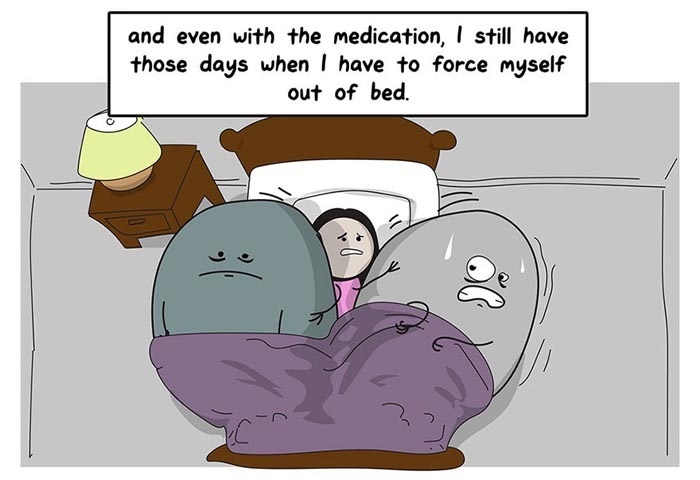
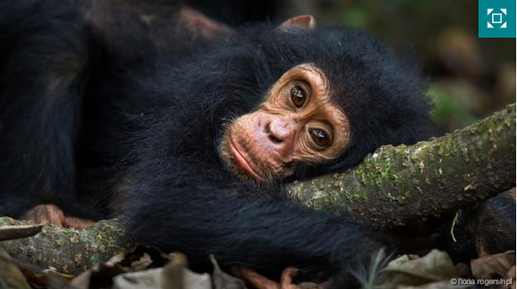
 RSS Feed
RSS Feed
